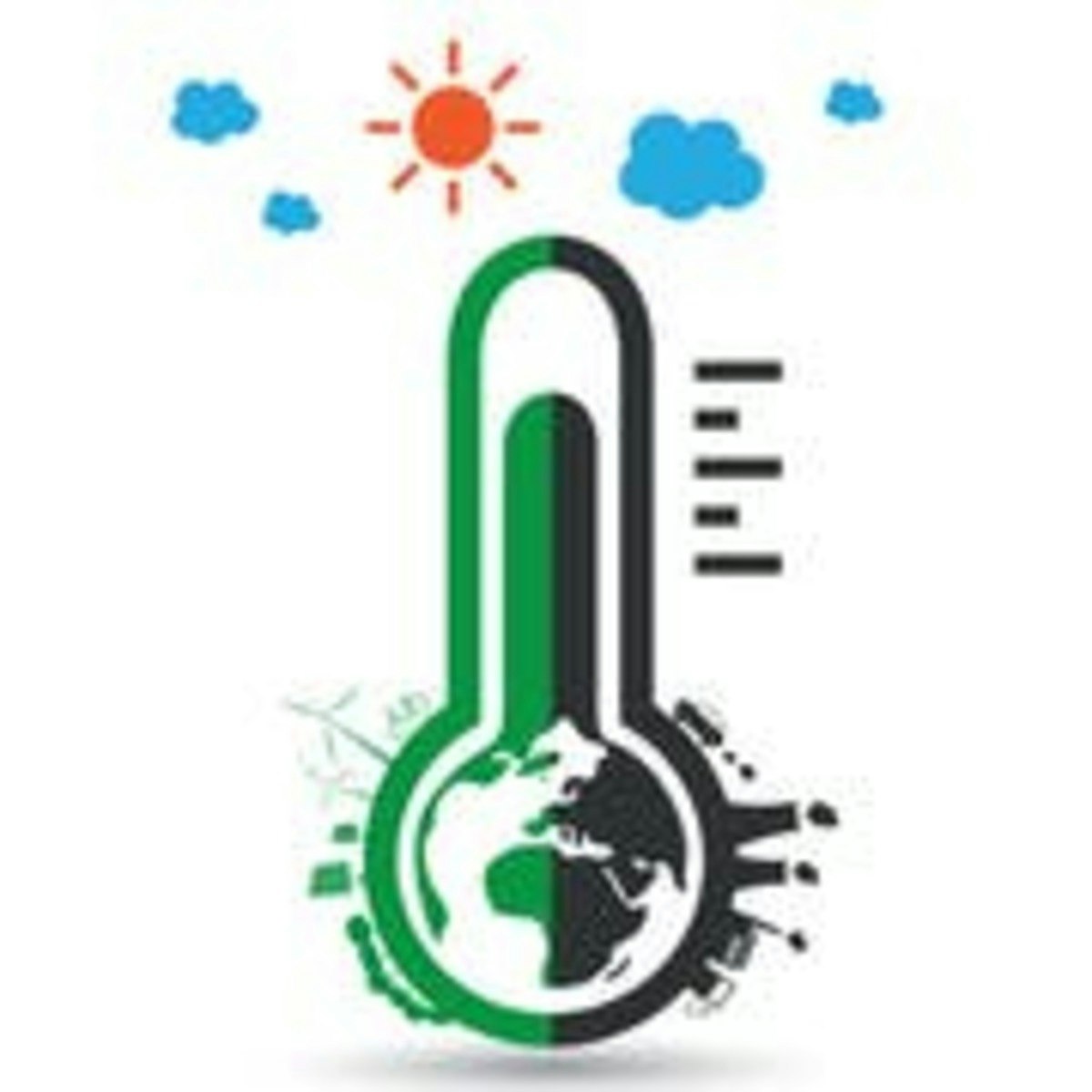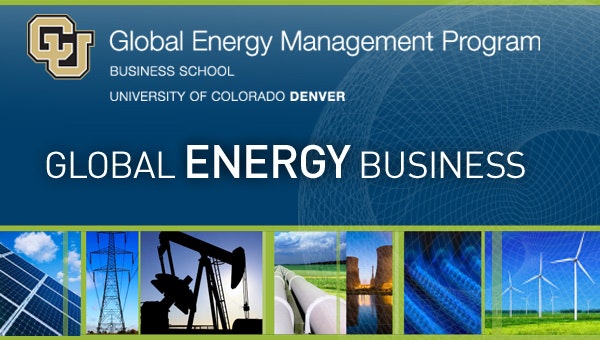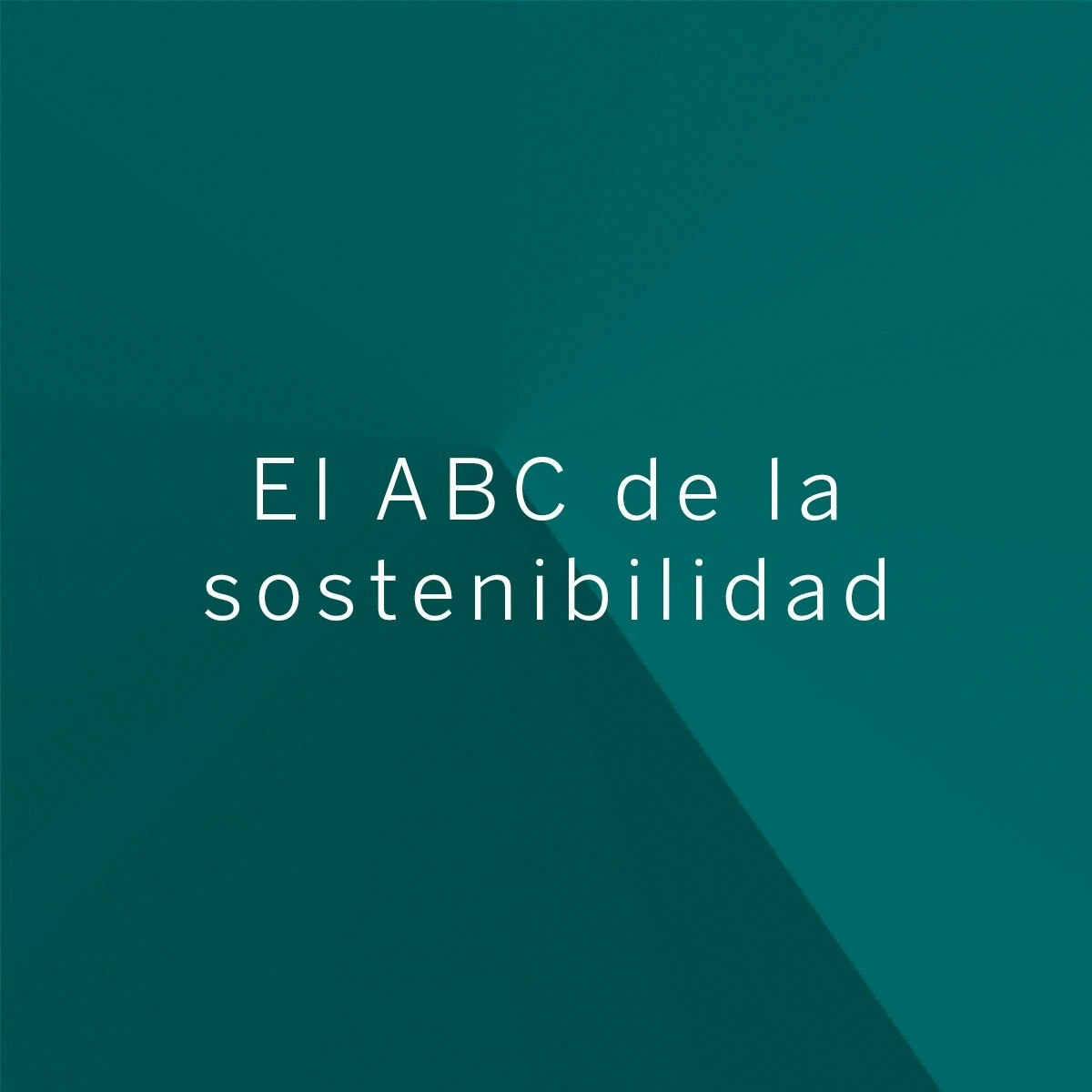Energy Consultant
Energy Consultant: A Comprehensive Career Guide
An Energy Consultant advises individuals, businesses, and organizations on optimizing energy use, reducing costs, and improving environmental sustainability. These professionals analyze energy consumption patterns, identify inefficiencies, and recommend strategies that often involve renewable energy sources, energy-efficient technologies, and compliance with environmental regulations. Think of them as strategic partners helping clients navigate the complex world of energy management, aiming for both economic savings and a reduced carbon footprint.
Working as an Energy Consultant can be deeply engaging. You might find excitement in tackling complex technical challenges, such as designing an energy system for a new building or optimizing the operations of an industrial plant. The role also involves significant strategic thinking, helping organizations align their energy practices with broader business goals and sustainability targets. Furthermore, the field offers the chance to contribute directly to addressing critical global issues like climate change and energy security, making it a potentially rewarding path for those passionate about environmental stewardship.
What Does an Energy Consultant Do?
Energy Consultants wear many hats, blending technical expertise with strategic advisory. Their day-to-day activities are diverse, focusing on helping clients understand and manage their energy consumption effectively. This involves a mix of analysis, planning, communication, and implementation oversight.
Core Tasks and Responsibilities
A primary function of an Energy Consultant is conducting energy audits. This involves a detailed assessment of a client's facilities, processes, and energy usage data to pinpoint areas of inefficiency. Based on these audits, consultants develop comprehensive energy management plans outlining specific measures for improvement, potential cost savings, and environmental benefits.
Sustainability planning is another key area. Consultants help organizations develop strategies to reduce their environmental impact, often by incorporating renewable energy sources like solar or wind power, or by improving overall energy efficiency. This might involve feasibility studies for new technologies or advising on achieving green building certifications like LEED.
Policy analysis is also crucial. Consultants must stay abreast of evolving energy regulations, government incentives, and market trends. They advise clients on navigating these complexities, ensuring compliance and identifying opportunities related to policy changes. This could range from understanding carbon pricing mechanisms to leveraging tax credits for renewable energy investments.
Client Interaction and Stakeholder Management
Effective communication is paramount for an Energy Consultant. They must clearly present complex technical findings and strategic recommendations to diverse audiences, including senior management, technical staff, and external stakeholders. This requires strong presentation and report-writing skills.
Consultants act as liaisons between clients and technology vendors, contractors, or utility providers. They help negotiate contracts, oversee project implementation, and ensure that solutions meet the client's objectives and budget. Building trust and maintaining strong relationships with all parties is essential for successful project delivery.
Managing stakeholder expectations is a continuous process. Consultants need to understand the varying priorities of different groups within an organization – balancing financial targets with operational needs and sustainability goals. Persuasion and influence are key skills needed to gain buy-in for recommended changes, which often require significant investment or operational shifts.
Data Analysis and Modeling Techniques
Data is central to energy consulting. Consultants collect and analyze vast amounts of information, from utility bills and meter readings to building system performance data. Proficiency in data analysis tools and techniques, including spreadsheet software and potentially specialized energy modeling software, is vital.
Consultants often use modeling software, such as TRNSYS or similar tools, to simulate the energy performance of buildings or industrial processes. These models help predict the impact of different energy efficiency measures or renewable energy installations, allowing for informed decision-making based on projected savings and performance.
Financial analysis is also part of the toolkit. Consultants must evaluate the economic feasibility of proposed projects, calculating metrics like return on investment (ROI), payback period, and net present value (NPV). This helps clients prioritize investments based on financial returns alongside environmental benefits.
These courses provide foundational knowledge in data analysis techniques relevant to energy systems and sustainability metrics.
Regulatory Compliance and Reporting
Navigating the web of energy and environmental regulations is a critical responsibility. Consultants help clients understand and comply with local, national, and international standards related to energy efficiency, emissions, and waste management.
They assist clients in preparing compliance reports for regulatory bodies. This often involves meticulous data collection, analysis, and documentation to demonstrate adherence to standards or progress towards mandated targets, such as greenhouse gas reduction goals.
Beyond mandatory compliance, consultants also help companies with voluntary reporting frameworks, such as ESG (Environmental, Social, and Governance) reporting. They guide clients in measuring and disclosing their energy performance and sustainability initiatives to investors, customers, and other stakeholders, enhancing transparency and corporate reputation.
Understanding policy is fundamental. These resources cover energy policy and its economic implications.
Formal Education Pathways
Embarking on a career as an Energy Consultant typically begins with a strong educational foundation. While specific requirements vary, certain academic backgrounds provide the necessary technical knowledge and analytical skills for success in this field.
Relevant Undergraduate Degrees
A bachelor's degree is generally the minimum educational requirement. Degrees in engineering disciplines are highly relevant, particularly Mechanical Engineering, Electrical Engineering, Chemical Engineering, or Environmental Engineering. These programs provide a solid grounding in thermodynamics, fluid mechanics, power systems, and process design – all crucial for understanding energy use.
Environmental Science or Sustainability Studies degrees are also common pathways. These programs focus more broadly on environmental systems, policy, and management, equipping graduates with the knowledge to address the sustainability aspects of energy consulting.
Other potentially relevant fields include Physics, Economics, Business, or Finance. An economics or business background can be valuable for understanding energy markets, project finance, and cost-benefit analysis, while physics provides a deep understanding of fundamental energy principles.
These courses offer introductions to core concepts in energy systems and environmental science.
Graduate Programs Specializing in Energy Systems
While not always required, a master's degree can provide a competitive edge, particularly for specialized roles or positions in major consulting firms. Many universities offer master's programs specifically focused on energy systems, renewable energy, energy management, or sustainable engineering.
These advanced programs delve deeper into topics like energy modeling, advanced thermodynamics, power system analysis, renewable energy technologies (solar, wind, geothermal), building energy performance, and energy policy analysis. They often include research components or capstone projects, providing practical experience.
An MBA with a concentration in sustainability or energy can also be a valuable route, especially for those aspiring to leadership roles. This combines business acumen with specialized energy knowledge, preparing graduates for strategic decision-making within the energy sector.
These advanced courses cover specialized topics in energy systems and management, akin to graduate-level studies.
PhD Research Areas Shaping Industry Practices
A PhD is typically pursued by those interested in research, academia, or highly specialized technical consulting roles. Doctoral research in energy-related fields pushes the boundaries of knowledge and often directly influences industry practices.
Research areas might include developing novel renewable energy technologies, improving energy storage solutions (like batteries or hydrogen), advancing smart grid technologies, creating more sophisticated energy modeling techniques, or analyzing the socio-economic impacts of energy transitions.
Graduates with PhDs often work in R&D departments of large energy companies, national laboratories, think tanks, or specialized consulting firms focused on cutting-edge technological or policy challenges. Their deep expertise allows them to tackle the most complex problems in the energy sector.
These books delve into complex energy topics, suitable for advanced learners or those considering research.
Accreditation and Licensure Requirements
While specific licensure like a Professional Engineer (PE) license isn't always mandatory for energy consulting roles (unlike some traditional engineering positions), it can be advantageous, especially for those signing off on engineering designs or assessments. Requirements for PE licensure vary by state/country but typically involve an accredited engineering degree, years of work experience, and passing exams.
Professional certifications are highly valued in the energy consulting field. The Certified Energy Manager (CEM) designation, offered by the Association of Energy Engineers (AEE), is widely recognized and often preferred or required by employers. It demonstrates comprehensive knowledge of energy management principles and practices.
Other relevant certifications include the Certified Energy Auditor (CEA), also from AEE, and certifications related to green building, such as Leadership in Energy and Environmental Design (LEED) credentials offered by the U.S. Green Building Council (USGBC). Specific software or technology certifications can also enhance credentials. Pursuing these certifications, often requiring experience and passing an exam, signals expertise to clients and employers.
Online and Independent Learning Strategies
Beyond formal degrees, online learning offers flexible and accessible pathways to acquire the knowledge and skills needed for a career in energy consulting. This route is particularly valuable for career pivoters or those looking to supplement traditional education with specialized expertise.
Digital Platforms for Technical Skill Development
Numerous online platforms provide courses covering essential technical areas for energy consultants. You can find courses on renewable energy technologies (solar, wind, geothermal), energy efficiency principles, building science, HVAC systems, power systems, and energy auditing techniques.
Platforms like OpenCourser aggregate offerings from various providers, allowing learners to browse through thousands of courses covering topics from basic energy concepts to advanced energy modeling and policy analysis. Learners can compare syllabi, read reviews, and find courses taught by university professors or industry experts.
Developing data analysis and modeling skills is crucial. Online courses teach software like Excel for energy analysis, specialized energy modeling tools (e.g., TRNSYS, OpenStudio), and programming languages like Python for data manipulation and optimization, which are increasingly used in the field.
These online courses cover a range of topics relevant to energy consulting, from fundamentals to specific technologies.
Project-Based Learning Opportunities
Theoretical knowledge gains practical relevance through application. Many online courses incorporate project-based learning, where students analyze real-world case studies, conduct virtual energy audits, or design hypothetical energy systems. This hands-on experience is invaluable.
Seek out opportunities to apply learned skills. Participate in online competitions or challenges related to energy efficiency or renewable energy design. Contribute to open-source projects focused on energy modeling or data analysis tools. These activities demonstrate initiative and practical ability.
Consider creating personal projects. Analyze your own home's energy use, develop an energy-saving plan, or model the potential of solar panels for a local community building. Documenting these projects showcases your skills and passion for the field.
Certifications vs. Degree Equivalency
While online courses and certifications enhance skills, they typically supplement rather than replace a formal degree, especially for entry-level positions requiring foundational engineering or scientific knowledge. However, for those already holding a degree in a related or even unrelated field, targeted certifications can be highly effective for specializing or pivoting into energy consulting.
Industry-recognized certifications like the CEM (Certified Energy Manager) or CEA (Certified Energy Auditor) carry significant weight. Many online courses specifically prepare learners for these certification exams, providing a structured path to acquiring these valuable credentials.
Focus on building a portfolio of skills and knowledge, combining online learning, certifications, and practical projects. While a degree provides a strong base, demonstrable skills and specialized credentials acquired online can significantly boost career prospects, particularly for mid-career transitions.
These resources explore various aspects of energy technology and management, useful for certification preparation or specialized knowledge.
Building Portfolios Through Freelance/Simulated Projects
A portfolio demonstrating practical application of your skills is essential, especially for independent learners or career changers. Document completed projects from online courses, personal initiatives, or any freelance work undertaken.
Consider offering pro bono or low-cost energy assessments for non-profits or small local businesses. This provides real-world experience and tangible results to include in your portfolio, even if the initial projects are small in scale.
Simulated projects can also be effective. Use publicly available data or case studies to conduct your own energy analyses, develop recommendations, and create professional-quality reports as if for a real client. Platforms like OpenCourser sometimes suggest activities or projects related to courses, which can be found in the "Activities" section on course pages, providing structured ways to build portfolio pieces.
Career Progression for Energy Consultants
A career in energy consulting offers various pathways for growth and specialization. Progression typically involves gaining technical expertise, developing client management skills, and potentially moving into leadership or specialized technical roles.
Entry-Level Roles
Graduates often start in roles like Energy Analyst or Junior Consultant. In these positions, the focus is typically on supporting senior consultants with data collection, analysis, modeling, research, and report preparation. It's a crucial phase for learning the practical aspects of the job and understanding different client industries.
Common tasks include analyzing utility bills, assisting with energy audits under supervision, researching energy efficiency technologies or renewable energy options, and learning to use industry-standard software tools. This period builds a strong foundation in technical skills and consulting methodologies.
Entry-level professionals work closely with project teams, gaining exposure to client interactions and project management processes. Developing strong analytical, communication, and organizational skills is key during this stage for future advancement.
Mid-Career Specialization Paths
After gaining a few years of experience, consultants often begin to specialize. Specializations might focus on specific industries (e.g., manufacturing, healthcare, commercial real estate), technologies (e.g., solar PV, energy storage, HVAC optimization), or service areas (e.g., energy procurement, carbon management, regulatory compliance).
Mid-career consultants take on more responsibility, managing smaller projects independently or leading specific workstreams within larger projects. They develop deeper client relationships, contribute to business development efforts by identifying new opportunities, and may start mentoring junior staff.
This stage often involves pursuing advanced certifications (like the CEM or specialized LEED credentials) or potentially a master's degree to deepen expertise in a chosen area. Strong project management and client communication skills become increasingly important for success.
Consider exploring related fields like sustainability management or energy engineering as potential specialization avenues.
Leadership/Executive Trajectories
Experienced consultants with strong technical backgrounds, client management skills, and business acumen can progress into leadership roles. This might involve becoming a Principal Consultant, Practice Lead, or Partner within a consulting firm, or moving into senior energy management positions within large organizations.
Leadership roles involve managing teams of consultants, overseeing large and complex projects, driving business development and client acquisition, and shaping the strategic direction of the practice or department. Responsibilities shift towards strategy, mentorship, and P&L management.
At the executive level, individuals might influence industry standards, contribute to policy discussions, and lead major initiatives related to energy transition and sustainability. Strong leadership, strategic vision, and extensive industry networks are hallmarks of professionals at this stage.
Transition Opportunities to Adjacent Fields
The skills and knowledge gained as an Energy Consultant open doors to various related fields. Experienced consultants might transition into roles in utility companies, managing energy efficiency programs or grid modernization projects. Opportunities also exist within renewable energy development companies, focusing on project finance, development, or asset management.
Some consultants move into corporate sustainability roles, leading environmental initiatives for large companies across various sectors. Others might leverage their expertise in policy analysis to work for government agencies, regulatory bodies, or non-profit organizations focused on energy and environmental policy.
The growing field of sustainable finance and ESG investing also presents opportunities, where former consultants can apply their knowledge to evaluate energy-related investments and risks. Entrepreneurship is another path, with some consultants starting their own specialized firms or technology companies.
Industry Trends Impacting Energy Consultants
The energy sector is undergoing rapid transformation, driven by technological innovation, policy changes, and evolving market dynamics. Energy Consultants must stay informed about these trends to provide relevant and forward-looking advice to their clients.
Decarbonization and Renewable Energy Adoption
The global push towards decarbonization is a major driver for energy consulting. Companies across industries face increasing pressure from regulators, investors, and customers to reduce their carbon footprint. Consultants are essential in developing strategies for transitioning away from fossil fuels.
This involves helping clients assess the feasibility and economics of adopting renewable energy sources like solar, wind, geothermal, and biomass. Consultants advise on procurement options, such as Power Purchase Agreements (PPAs), onsite generation, and renewable energy credits (RECs), navigating complex market mechanisms and incentives.
The focus extends beyond electricity to include decarbonizing heating, transportation, and industrial processes through electrification, hydrogen adoption, and other low-carbon solutions. Consultants help clients understand these emerging technologies and integrate them into their long-term energy plans.
These resources cover the shift towards cleaner energy sources and related financial agreements.
Technological Advancements
Technology is reshaping the energy landscape. The rise of smart grid technologies enables better monitoring, control, and optimization of energy distribution and consumption. Consultants help clients leverage smart meters, advanced sensors, and grid automation to improve efficiency and reliability.
Artificial Intelligence (AI) and Machine Learning are increasingly used for energy forecasting, predictive maintenance of energy assets, and optimizing complex energy systems. Consultants advise on implementing AI-driven solutions, although the significant energy demand of data centers powering AI presents its own challenges, as highlighted in PwC's 2025 energy trends report.
Energy storage solutions, particularly batteries, are becoming more cost-effective and crucial for integrating intermittent renewable energy sources. Consultants evaluate storage options, model their impact on energy costs and grid stability, and advise on deployment strategies.
Geopolitical Factors Affecting Energy Markets
Global energy markets are sensitive to geopolitical events, impacting energy prices, supply chain security, and policy directions. Consultants must monitor these factors and help clients develop resilient energy strategies that mitigate risks associated with price volatility and supply disruptions.
Events like international conflicts, trade disputes, or changes in major energy-producing nations' policies can have cascading effects. Consultants analyze potential impacts on energy costs, technology availability, and regulatory landscapes, advising clients on diversification and risk management.
The push for energy independence and security in many regions is accelerating investments in domestic energy resources, including both renewables and traditional sources. Consultants help clients navigate these shifting priorities and associated policy incentives or mandates.
Emerging Regulatory Frameworks
Governments worldwide are implementing new regulations aimed at accelerating the energy transition and addressing climate change. These include carbon pricing mechanisms (like carbon taxes or emissions trading systems), stricter energy efficiency standards for buildings and appliances, and mandates for renewable energy adoption.
Consultants play a vital role in helping clients understand these complex regulations, assess their potential impact on operations and costs, and develop compliance strategies. This may involve detailed emissions reporting, implementing specific technological upgrades, or changing operational practices.
The regulatory landscape is constantly evolving, requiring ongoing monitoring and analysis. Consultants provide crucial updates and strategic advice, ensuring clients not only comply but also potentially capitalize on opportunities created by new policies, such as subsidies or green financing options. According to market analysis by Mordor Intelligence, this regulatory push is a significant driver of demand for energy consulting services.
Ethical and Sustainability Challenges
Energy consulting operates at the intersection of business, environment, and society, presenting unique ethical considerations. Consultants must navigate complex situations where economic interests may conflict with environmental or social goals.
Balancing Profitability with Environmental Impact
A core challenge is advising clients on strategies that are both economically viable and environmentally responsible. While energy efficiency often leads to cost savings, adopting cutting-edge renewable technologies or deep decarbonization measures can require significant upfront investment.
Consultants must present a balanced view, accurately quantifying both the financial implications (costs, savings, ROI) and the environmental benefits (emissions reductions, resource conservation) of different options. Transparency about trade-offs is crucial for building trust and enabling informed decision-making.
Ethical consultants prioritize long-term sustainability and client well-being over short-term gains or recommending unnecessarily expensive solutions. They strive to find optimal pathways that align economic performance with environmental stewardship.
Addressing Energy Poverty and Equity
Energy decisions can have significant social equity implications. Large-scale energy projects might impact local communities, while the cost of transitioning to cleaner energy sources could disproportionately affect low-income households if not managed carefully.
Consultants should be mindful of these equity dimensions when advising clients. This might involve considering the distributional impacts of energy pricing changes, advocating for community benefit agreements in project development, or designing energy efficiency programs that are accessible to underserved populations.
Promoting energy access and affordability, particularly in developing regions or disadvantaged communities, is an important ethical consideration. Consultants working on international projects or with utilities serving diverse populations should strive to incorporate equity principles into their recommendations.
Greenwashing Risks in Consulting Projects
As sustainability becomes a key marketing and branding element, there is a risk of "greenwashing" – making misleading claims about the environmental benefits of a product, service, or company practice. Energy consultants must maintain integrity and avoid contributing to such practices.
This requires rigorous analysis and honest communication about the actual environmental impact of recommended solutions. Consultants should avoid exaggerating benefits or promoting technologies that offer marginal improvements while masking larger environmental problems.
Maintaining professional skepticism and adhering to recognized standards for environmental reporting and verification helps mitigate greenwashing risks. Ethical consultants ensure their recommendations are based on sound science and data, providing genuine value rather than just a superficial green veneer.
Conflicts Between Stakeholder Interests
Energy projects often involve multiple stakeholders with potentially conflicting interests – investors seeking financial returns, communities concerned about local impacts, employees worried about job security, regulators focused on compliance, and environmental groups advocating for protection.
Consultants frequently find themselves navigating these complex dynamics. Facilitating dialogue, understanding different perspectives, and seeking solutions that address multiple concerns require strong communication, negotiation, and conflict resolution skills.
Maintaining objectivity and transparency while balancing competing interests is an ethical tightrope walk. Consultants must clearly define their role and responsibilities, manage expectations, and ensure their advice serves the overall project goals while respecting the legitimate concerns of various stakeholders.
Global Opportunities and Mobility
The energy transition is a global phenomenon, creating opportunities for Energy Consultants around the world. However, the nature of these opportunities and the requirements for working internationally vary significantly.
Regional Demand Variations
Demand for energy consulting services differs across regions. Established markets like North America and Europe often focus on grid modernization, integration of high levels of renewables, regulatory compliance, and optimizing existing infrastructure. North America, in particular, holds a significant share of the global market, driven by its energy sector diversity and policy initiatives, as noted by Coherent Market Insights.
In rapidly developing economies in Asia, Latin America, and Africa, the focus might be more on building new energy infrastructure, increasing energy access, leapfrogging to cleaner technologies, and developing foundational energy policies. Opportunities may involve large-scale renewable projects, rural electrification, or establishing energy efficiency standards.
Specific regional priorities also differ. Some regions heavily prioritize specific renewable sources (e.g., solar in sunny climates, hydro in mountainous regions), while others might focus on specific challenges like water scarcity impacting energy production or adapting to climate change impacts on infrastructure.
Cross-Cultural Competency Requirements
Working internationally requires strong cross-cultural communication skills and adaptability. Understanding different business practices, communication styles, regulatory environments, and societal values is crucial for success.
Building relationships and trust with clients and colleagues from different cultural backgrounds is key. This involves being respectful, open-minded, and patient, and potentially learning basic phrases in the local language.
Consultants working abroad must also be sensitive to local political and economic contexts. Solutions that work well in one country may not be appropriate or feasible in another due to differing regulations, market structures, resource availability, or social priorities.
Remote Work Possibilities in Energy Consulting
While some aspects of energy consulting, like site audits or physical inspections, require onsite presence, many tasks can be performed remotely. Data analysis, modeling, report writing, research, and virtual client meetings are well-suited for remote work.
The feasibility of fully remote roles depends on the specific company, client base, and type of consulting. Firms with international clients or those focused purely on data analysis and strategy might offer more remote opportunities than those heavily involved in implementation or fieldwork.
Hybrid models, combining remote work with periodic travel for client meetings or site visits, are becoming increasingly common. This offers flexibility while still allowing for essential in-person interaction and site-specific assessments when needed.
Visa/Licensing Considerations
Working internationally typically involves navigating visa requirements, which vary significantly by country and depend on factors like nationality, duration of stay, and type of work. Obtaining the necessary work permits can be a complex and time-consuming process.
Professional licensing and certification requirements also differ globally. While certifications like the CEM are internationally recognized, specific countries may have their own mandatory licenses or qualifications for practicing certain types of engineering or consulting work.
Consultants seeking international opportunities should research the specific requirements for their target countries well in advance. Employers or consulting firms often provide assistance with visa applications and navigating local regulations for employees working on international assignments.
Frequently Asked Questions
Here are answers to some common questions potential Energy Consultants might have about the career path, prospects, and daily realities of the job.
What are typical salary ranges at different career stages?
Salaries for Energy Consultants vary based on experience, location, education, certifications, and employer type (e.g., consulting firm vs. in-house role). Entry-level analysts might start in the range of $56,000 to $67,000 annually in the US.
Mid-career consultants with several years of experience and potentially certifications like the CEM often earn between $70,000 and $100,000. Senior consultants, principal consultants, or managers can earn significantly more, potentially exceeding $120,000, with top earners reaching over $165,000 according to data from ZipRecruiter as of early 2025.
Geographic location plays a significant role, with salaries generally higher in major metropolitan areas or regions with high demand for energy expertise. Specific roles, like Renewable Energy Consultant, may have different salary bands; ZipRecruiter data suggests a lower average for this specific title compared to general Energy Consultants, though ranges overlap.
Which industries have the highest growth potential for energy consulting?
Growth is strong across multiple sectors driven by the energy transition. The renewable energy sector itself (solar, wind, storage) is a major source of demand. Industries with high energy consumption and regulatory pressure, such as manufacturing, utilities, transportation, and commercial real estate, also show significant potential.
Emerging areas like data centers, driven by AI and cloud computing, present new challenges and opportunities due to their rapidly growing energy needs. Likewise, the push for electrification in transportation (EVs) and buildings creates demand for consultants specializing in charging infrastructure and building system integration.
Furthermore, the focus on ESG (Environmental, Social, Governance) factors means that nearly all large corporations require some form of energy and sustainability consulting to meet reporting requirements and stakeholder expectations, broadening the scope across diverse industries.
How feasible is transitioning from engineering/other fields to energy consulting?
Transitioning from related fields like mechanical, electrical, or environmental engineering is very common and relatively straightforward, as the foundational technical knowledge is highly relevant. Professionals in these fields often need to supplement their background with knowledge of energy markets, policy, and specific consulting skills.
Pivoting from less technical fields like finance, business analysis, or policy is also possible but may require more effort to build the necessary technical understanding of energy systems. Pursuing targeted online courses, certifications (like CEM), or even a relevant master's degree can bridge knowledge gaps.
Highlighting transferable skills like data analysis, project management, client communication, and problem-solving is crucial regardless of background. Networking within the energy industry and gaining practical experience through projects or internships can greatly facilitate the transition.
For those considering a career change, OpenCourser offers resources like the Learner's Guide with tips on structuring self-learning and leveraging online education for career development.
What are the most essential certifications for career advancement?
The Certified Energy Manager (CEM) from the Association of Energy Engineers (AEE) is arguably the most widely recognized and valued certification in the field. It demonstrates broad competence in energy management principles and practices and is often a preferred or required credential.
The Certified Energy Auditor (CEA), also from AEE, is essential for those specializing in conducting detailed energy audits. LEED credentials (e.g., LEED Green Associate, LEED AP) are vital for consultants working in green building design and construction.
Depending on the specialization, other certifications might be beneficial, such as those related to measurement and verification (CMVP), building commissioning (CBCP), renewable energy technologies, or specific software platforms used in energy modeling or analysis. Continuous learning and staying current with relevant certifications support career growth.
How might automation impact job prospects for Energy Consultants?
Automation and AI are likely to change aspects of the job, but not eliminate the need for human consultants. AI can automate routine data analysis, improve the accuracy of energy modeling, and potentially streamline reporting tasks, freeing up consultants' time.
However, the strategic aspects of consulting – understanding client needs, developing tailored solutions, navigating complex stakeholder dynamics, interpreting regulations, and providing persuasive advice – require critical thinking, creativity, and interpersonal skills that are difficult to automate fully.
Consultants who embrace these new tools and focus on higher-level strategic advisory, complex problem-solving, and client relationship management are likely to thrive. The role may evolve towards leveraging technology to provide deeper insights and more sophisticated solutions, rather than being replaced by it. The growing complexity of the energy transition suggests continued strong demand for skilled human expertise.
What are the typical work-life balance expectations?
Work-life balance in energy consulting can vary significantly. Working for a large consulting firm often involves project-based work with deadlines, which can lead to periods of intense workload and longer hours, particularly when meeting client deliverables.
Travel requirements can also impact work-life balance, especially for roles involving frequent site visits or client meetings in different locations, although remote work trends may mitigate this for some roles.
In-house energy management roles might offer more predictable hours compared to external consulting. Freelance or independent consultants have more control over their schedule but also bear the responsibility of managing their own workload and business development. Ultimately, expectations depend heavily on the specific employer, role, and individual project demands.
Becoming an Energy Consultant offers a dynamic career path at the forefront of critical global change. It requires a blend of technical knowledge, analytical prowess, and strong communication skills. While demanding, it provides opportunities to contribute meaningfully to sustainability and help organizations navigate the complexities of the evolving energy landscape. Whether you are starting your educational journey, considering a career pivot, or looking to specialize further, the field offers diverse avenues for growth and impact.























